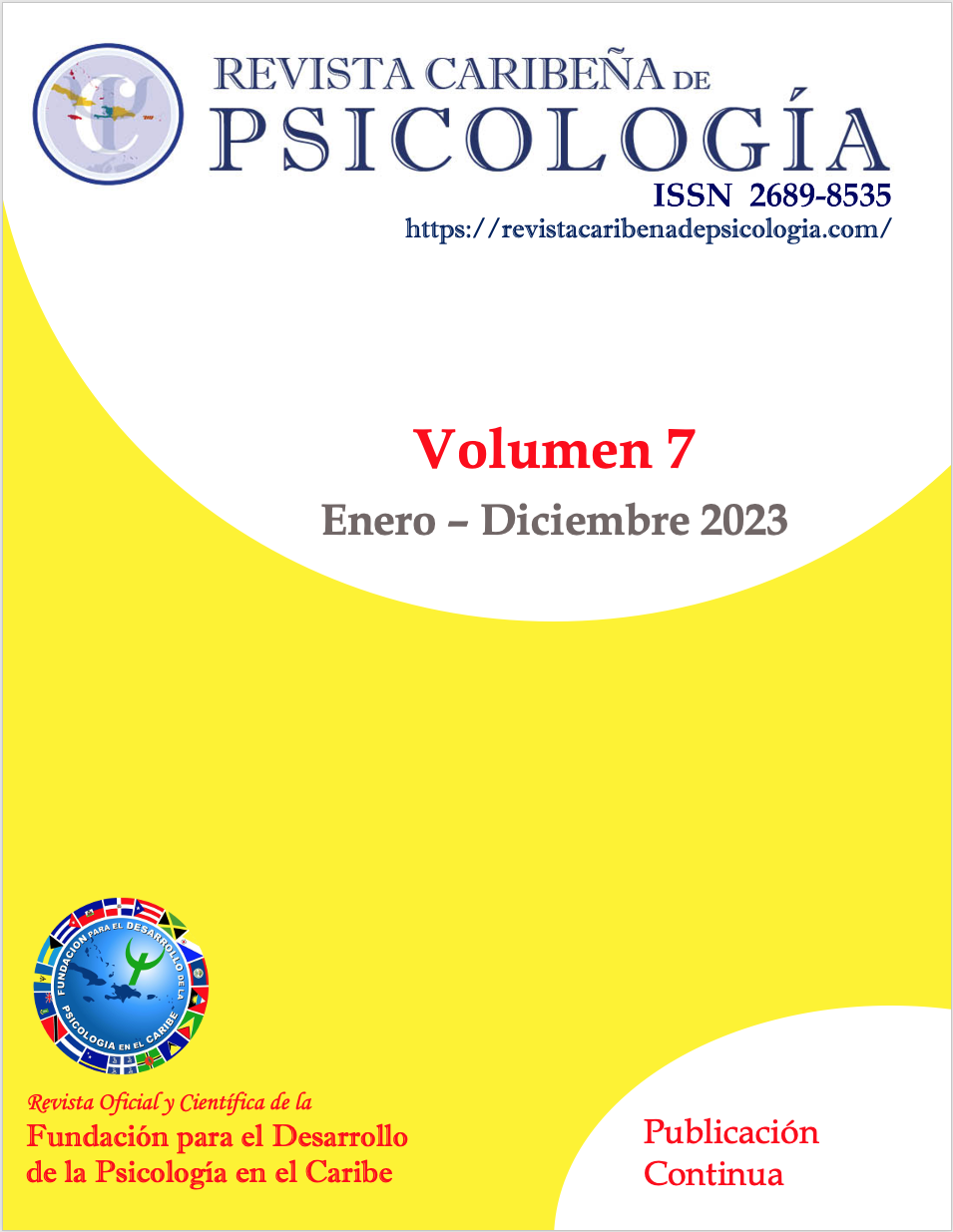Social, Health and Mental Health Barriers for Care: The Perspective of Providers of Homeless Veterans
DOI:
https://doi.org/10.37226/rcp.v7i1.7201Palabras clave:
homeless persons, psychosocial care, veteransResumen
Most veteran homelessness literature focused on homelessness predictors, services provision, housing security, and homelessness experiences. One scarcely studied aspect is the perceptions of service providers in the Veterans Health Administration. Using two Focus Group Interviews in 2016 and 2021 as part of a Plan-Do-Study-Act Quality Improvement Process, the scope of homelessness and issues related to health, mental health, social services use, and recovery were assessed with 22 providers of homeless veterans at the VA Caribbean Healthcare System. Narratives indicated 2 mayor themes (homeless veteran care and factors limiting successful reintegration) and seven minor themes (first approach, OIF/OEF homeless veterans, Stigma, VA and non-VA communication, mental health and substance use, legal problems, and social and life skills). Results highlighted the presence of institutional stigma towards this population that extended to the providers. There is also a shortage of gender appropriate shelters on the island. Providers remarked on providing resources beyond housing to ensure quality of life. Implications of results call for a more integrated view of the Homeless Program with occupational, recreative, health and mental health services, institutional education initiatives to reduce stigma, and a more effective VA and non-VA service coordination.
Citas
Adler, G., Pritchett, L. R., Kauth, M. R., & Mott, J. (2015). Staff perceptions of homeless veterans’ needs and available ser-vices at community-based outpatient clinics. Journal of Rural Mental Health, 39(1), 46–53. https://doi.org/10.1037/rmh0000024
Benda B. B. (2005). Gender differences in predictors of suicidal thoughts and attempts among homeless veterans that abuse substances. Suicide & life-threatening behavior, 35(1), 106–116. https://doi.org/10.1521/suli.35.1.106.59262
Bennett, A. S., Elliott, L., & Golub, A. (2013). Opioid and other substance misuse, overdose risk, and the potential for preven-tion among a sample of OEF/OIF veterans in New York City. Substance use & misuse, 48(10), 894–907. https://doi.org/10.3109/10826084.2013.796991
Carlson, E. B., Garvert, D. W., Macia, K. S., Ruzek, J. I., & Burling, T. A. (2013). Traumatic stressor exposure and post-traumatic symptoms in homeless veterans. Military medicine, 178(9), 970–973. https://doi.org/10.7205/MILMED-D-13-00080
Chinchilla, M., Gabrielian, S., Hellemann, G., Glasmeier, A., & Green, M. (2019). Determinants of community integration among formerly homeless veterans who received supportive housing. Frontiers in Psychiatry, 10, 472. https://doi.org/10.3389/fpsyt.2019.00472
Crone, B., Metraux, S., & Sbrocco, T. (2021. Health service access among homeless veterans: Health access challenges faced by homeless African American veterans. Journal of Racial and Ethnic Health Disparities, 9(5), 1828–1844. https://doi.org/10.1007/s40615-021-01119-z
Dinnen, S., Kane, V., & Cook, J. M. (2014). Trauma-informed care: A paradigm shift needed for services with homeless veterans. Professional Case Management, 19(4), 161–172. https://doi.org/10.1097/NCM.0000000000000038
Forchuk, C., Richardson, J., & Atyeo, H. (2021). A Housing First Evaluation Project for Homeless Veterans in Canada: Quanti-tative findings. Journal of Military, Veteran and Family Health. https://doi.org/10.3138/jmvfh-2020-0053
Gabrielian, S., Hamilton, A. B., Gelberg, L., Koosis, E. R., Johnson, A., & Young, A. S. (2019). Identifying Social Skills That Sup-port Housing Attainment and Retention Among Homeless Persons with Serious Mental Illness. Psychiatric Services, 70(5), 374–380. https://doi.org/10.1176/appi.ps.201800508
Henry, M., de Sousa, T., Tano, C., Dick, N. (2022). AHAR: Part 1 - Point in time estimates of homelessness in the U.S. https://www.huduser.gov/portal/datasets/ahar/2021-ahar-part-1-pit-estimates-of-homelessness-in-the-us.html
Hutt, E., Whitfield, E., Min, S. J., Jones, J., Weber, M., Albright, K., Levy, C., & O'Toole, T. (2015). Challenges of Providing End-of-Life Care for Homeless Veterans. The American Journal of Hospice & Palliative Care, 33(4), 381–389. https://doi.org/10.1177/1049909115572992
Hutt, E., Albright, K., Dischinger, H., Weber, M., Jones, J., & O'Toole, T. P. (2017). Addressing the Challenges of Palliative Care for Homeless Veterans. The American Journal of Hospice & Palliative Care, 35(3), 448–455. https://doi.org/10.1177/1049909117722383
Jones, A. L., Hausmann, L., Kertesz, S. G., Suo, Y., Cashy, J. P., Mor, M. K., Pettey, W., Schaefer, J. H., Jr, Gordon, A. J., & Gundlapalli, A. V. (2019). Providing Positive Primary Care Experiences for Homeless Veterans Through Tailored Medical Homes: The Veterans Health Administration's Homeless Pa-tient Aligned Care Teams. Medical Care, 57(4), 270–278. https://doi.org/10.1097/MLR.0000000000001070
Kline, A., Callahan, L., Butler, M., St. Hill, L., Losonczy, M. F., Smelson, D. A. (2009). The relationship between military ser-vice eras and psychosocial treatment needs among homeless veterans with a co-occurring substance abuse and mental health disorder. Journal of Dual Diagnosis, 5(3-4), 357–74. https://doi.org/10.1080/15504260903175882
LaCoursiere Zucchero, T., McDannold, S., & McInnes, D. K. (2016). "Walking in a maze": community providers' difficulties coordinating health care for homeless patients. BMC Health Services Research, 16(1), 480. https://doi.org/10.1186/s12913-016-1722-x
LePage, J. P., Bluitt, M., McAdams, H., Merrell, C., House-Hatfield, T., & Garcia-Rea, E. (2006). Effects of increased so-cial support and lifestyle behaviors in a domiciliary for home-less veterans. Psychological Services, 3(1), 16–24. https://doi.org/10.1037/1541-1559.3.1.16
Markowitz, F. E., & Syverson, J. (2019). Race, Gender, and Home-lessness Stigma: Effects of Perceived Blameworthiness and Dangerousness. Deviant Behaviors, 42(7), 919-931. https://doi.org/10.1080/01639625.2019.1706140
Martínez-Taboas, A. (2020). Pandemias, COVID-19 y salud men-tal: ¿Qué sabemos actualmente? Revista Caribeña de Psicología, 4(2), 143-152. https://doi.org/10.37226/rcp.v4i2.4907
Phillips, R. (2020). The Stigmatized Hero? A Review of UK Opin-ion Polls and Surveys on Perceptions of British Veterans in UK Society. Journal of Veterans Studies, 6(1), pp. 64–84. https://doi.org/10.21061/jvs.v6i1.150
Resnik, L., Bradford, D. W., Glynn, S. M., Jette, A. M., Johnson Hernandez, C., & Wills, S. (2012). Issues in defining and measuring veteran community reintegration: proceedings of the Working Group on Community Reintegration, VA Reha-bilitation Outcomes Conference, Miami, Florida. Journal of Re-habilitation Research and Development, 49(1), 87–100. https://doi.org/10.1682/jrrd.2010.06.0107
Rivera-Rivera, N., & Villarreal, A. A. (2021). Homeless veterans in the Caribbean: Profile and housing failure. Revista Puertor-riqueña de Psicología, 32(1), 64–73.
Santa Ana, E. J., LaRowe, S. D., Armeson, K., Lamb, K. E., & Hartwell, K. (2016). Impact of group motivational interview-ing on enhancing treatment engagement for homeless Veter-ans with nicotine dependence and other substance use dis-orders: A pilot investigation. The American Journal on Addic-tions, 25(7), 533–541. https://doi.org/10.1111/ajad.12426
Schreiter, S., Speerforck, S., Schomerus, G., & Gutwinski, S. (2021). Homelessness: care for the most vulnerable - a narrative re-view of risk factors, health needs, stigma, and intervention strategies. Current Opinion in Psychiatry, 34(4), 400–404. https://doi.org/10.1097/YCO.0000000000000715
Semeah, L. M., Campbell, C. L., Cowper, D. C., Peet, A.C. (2017). Serving our homeless veterans: Patient perpetrated violence as a barrier to health care access. Journal of Public and Nonprofit Affairs, 3(2), 223. https://doi.org/10.20899/jpna.3.2.223-234
Sreenivasan, S., McGuire, J., Azizian, A., & Holliday, S. B. (2022). Reset for systematic action: Removing VA barriers to housing and treatment for military veterans with sexual offenses. Psy-chological services, Advance online publication. https://doi.org/10.1037/ser0000642
National Alliance to End Homelessness (2022). State of Homeless-ness: 2022 edition. https://endhomelessness.org/homelessness-in-america/homelessness-statistics/state-of-homelessness-2021/
Tessler, R., Rosenheck, R., & Gamache, G. (2002). Comparison of homeless veterans with other homeless men in a large clinical outreach program. The Psychiatric Quarterly, 73(2), 109–119. https://doi.org/10.1023/a:1015051610515
US Department of Housing and Urban Development. (2015). Mayors challenge: Mayors and staff. https://www.hudexchange.info/homelessness-assistance/mayors-challenge/
Descargas
Publicado
Cómo citar
Número
Sección
Licencia
Derechos de autor 2023 Naiomi Rivera-Rivera, Beatriz V. Lopez-Gonzalez, Irma L. Molina-Vicenty

Esta obra está bajo una licencia internacional Creative Commons Atribución 4.0.







